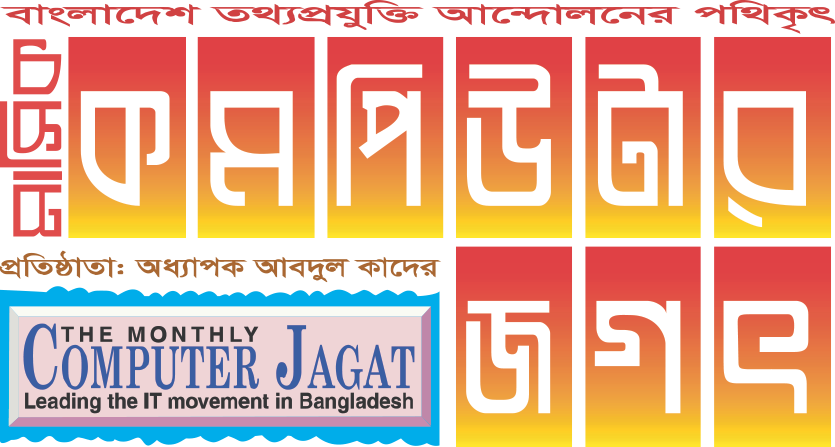হোম >
লেখক পরিচিতি
লেখকের নাম:
জাবেদ মোর্শেদ
মোট লেখা:১৩
লেখা সম্পর্কিত
পাবলিশ:
২০১৪ - নভেম্বর
তথ্যসূত্র:
কমপিউটার জগৎ
লেখার ধরণ:
টেলিযোগাযোগ
তথ্যসূত্র:
ইংরেজি সেকশন
ভাষা:
বাংলা
স্বত্ত্ব:
কমপিউটার জগৎ
Impact of Instant Chatting Application on Telecom Market
Impact of Instant Chatting Application on Telecom Market
Mohammad Jabed Morshed Chowdhury
According to research firm Informa, instant chatting application has overtaken the traditional SMS text message in recent year. In 2013, there were 19 billion text message was sent per day only in whatsApps. According to separate estimates by research firm Ovum, more than $23bn (£15bn) of SMS revenue was lost in 2012 due to popularity of chat apps. Informa said that it expected the messaging on chat apps to grow even further in the coming years. It has projected that nearly 50 billion messages will be sent per day using these apps by 2014, compared with just over 21 billion traditional SMSs. However, it said that despite the growing gap between the two, SMS will continue to remain a key player in the sector.
The global telecommunications market is a fast-paced environment and companies must ensure they are right up to date with the latest technological developments if they are to remain competitive. One of the biggest challenges facing telecom providers is dealing with soaring mobile traffic levels. Smartphone sales have risen sharply and while growth in this area is predicted to tail off in the coming years, firms will still find it difficult to keep their clogged networks running smoothly.
The huge popularity of instant messaging has certainly had a major impact on the sector of late. Consumers all over the world are frequently using services such as WhatsApp and social media chat platforms to send free messages to their friends and colleagues. Video services like Skype and Google Hangouts have also revolutionised the communications industry in recent years.
While the benefits of free instant mobile messaging are clear from a consumer’s perspective, there are numerous challenges for service providers to consider. Some of the most pressing problems include:
Declining SMS revenues
Extra online traffic
Security/privacy concerns
The growth of instant messaging
In a recent report, telecommunications industry analysts at Juniper Research predicted that instant messaging will account for 75 per cent of all mobile messaging traffic by 2018. This would be the equivalent of 63 trillion messages.
Clearly, this is going to have a significant impact on telecom companies’ revenues and firms will have to adapt if they are to continue making money from messaging services. But how do businesses make profits from services that people are using free of charge?
According to Juniper Research, instant messages will only generate two per cent of mobile messaging revenues by 2018, despite the fact they are expected to dominate the market in terms of volume. The instant messaging market is still in its infancy and app developers have adopted different approaches to maximise revenue - with mixed results.
Are SMS services set to become extinct?
With such a big proportion of mobile messages expected to be sent free of charge by 2018, it would be easy to assume that SMS services will eventually become obsolete.
However, this might not be the case, consumers will still use paid text messages. A large slice of instant messaging traffic is made up of people sending emoticons, images and stickers and the average mobile user will send ten ‘chats’ to convey a message that can be sent in just one SMS.
A study undertaken by Deloitte has also shown that SMS services are still lucrative for telecommunications providers. Although it predicts that 50 billion instant messages will be sent in 2014, more than double the number of paid text messages (21 billion), the latter will generate revenues of $100 billion this year. This is more than 50 times the amount of money made from instant messages. Two major concerns for instant messaging services to be treated as commercial alternative are downtime and security. Security is also an issue for personal use.
Downtime
With mobile traffic levels expected to soar in the next four years, it is vital that communications providers have a network infrastructure that can cope with the strain. Instant messaging services require reliable internet connections and with more people using free packages such as Skype and Google Hangouts to conduct important business meetings, network suppliers are under more pressure than ever to perform.
Back in 2011, there was a well-publicised outage in Research In Motion’s BlackBerry messaging service - known as BBM. Users in the Europe, Middle East and Africa regions were left without instant messaging for a prolonged period and a lot of people lost faith in the service.
Security concerns?
Another major issue that companies must deal with is cyber security.
Facebook’s recent purchase of mobile messaging service WhatsApp has caused controversy, with opponents suggesting the deal might prompt changes to the platform that could potentially affect users’ privacy.
Concerns have been raised about the security of popular app Snapchat, which enables users to send ten-second video clips to their friends. Once the footage has been viewed, it is then destroyed. In January 2014, a group of hackers said they had breached the app’s defences and were able to gain access to personal details of 4.6 million people, including their phone numbers and usernames.
This highlights the point that companies face a constant battle to ensure instant messaging services are secure.
Conclusion: Are instant messages the future?
There is no doubt that instant messaging has already overtaken SMS as the consumer’s favoured form of communication, although the latter will continue to be far more profitable.
Facebook’s recent purchase of WhatsApp is a telling indication that large technology, networking and communications firms see instant messaging as the future. With so much extra traffic to contend with, firms need to ensure their defences against cyber criminals are as tight as possible.
There have been calls for the instant messaging industry to be more closely regulated. Speaking to PTI in February 2014, Gopal Vittal, Joint Managing Director and Chief Executive Officer of Indian operations at multinational communications firm Bharti Airtel, said telecom firms are already subject to regulation and instant messaging app providers should be forced to follow suit.
It seems that user privacy and security are the most pressing issues for businesses to deal with in the coming years. While firms must also find new ways to increase revenues from such services, this should not be prioritised over data protection, as losing customers’ personal data can not only lead to heavy financial penalties, it can also cause irreversible reputational damage.
The vast popularity of instant messaging suggests there is a lot of money to be made and it is important that telecommunications companies adapt as the industry continues to evolve
Mohammad Jabed Morshed Chowdhury
According to research firm Informa, instant chatting application has overtaken the traditional SMS text message in recent year. In 2013, there were 19 billion text message was sent per day only in whatsApps. According to separate estimates by research firm Ovum, more than $23bn (£15bn) of SMS revenue was lost in 2012 due to popularity of chat apps. Informa said that it expected the messaging on chat apps to grow even further in the coming years. It has projected that nearly 50 billion messages will be sent per day using these apps by 2014, compared with just over 21 billion traditional SMSs. However, it said that despite the growing gap between the two, SMS will continue to remain a key player in the sector.
The global telecommunications market is a fast-paced environment and companies must ensure they are right up to date with the latest technological developments if they are to remain competitive. One of the biggest challenges facing telecom providers is dealing with soaring mobile traffic levels. Smartphone sales have risen sharply and while growth in this area is predicted to tail off in the coming years, firms will still find it difficult to keep their clogged networks running smoothly.
The huge popularity of instant messaging has certainly had a major impact on the sector of late. Consumers all over the world are frequently using services such as WhatsApp and social media chat platforms to send free messages to their friends and colleagues. Video services like Skype and Google Hangouts have also revolutionised the communications industry in recent years.
While the benefits of free instant mobile messaging are clear from a consumer’s perspective, there are numerous challenges for service providers to consider. Some of the most pressing problems include:
Declining SMS revenues
Extra online traffic
Security/privacy concerns
The growth of instant messaging
In a recent report, telecommunications industry analysts at Juniper Research predicted that instant messaging will account for 75 per cent of all mobile messaging traffic by 2018. This would be the equivalent of 63 trillion messages.
Clearly, this is going to have a significant impact on telecom companies’ revenues and firms will have to adapt if they are to continue making money from messaging services. But how do businesses make profits from services that people are using free of charge?
According to Juniper Research, instant messages will only generate two per cent of mobile messaging revenues by 2018, despite the fact they are expected to dominate the market in terms of volume. The instant messaging market is still in its infancy and app developers have adopted different approaches to maximise revenue - with mixed results.
Are SMS services set to become extinct?
With such a big proportion of mobile messages expected to be sent free of charge by 2018, it would be easy to assume that SMS services will eventually become obsolete.
However, this might not be the case, consumers will still use paid text messages. A large slice of instant messaging traffic is made up of people sending emoticons, images and stickers and the average mobile user will send ten ‘chats’ to convey a message that can be sent in just one SMS.
A study undertaken by Deloitte has also shown that SMS services are still lucrative for telecommunications providers. Although it predicts that 50 billion instant messages will be sent in 2014, more than double the number of paid text messages (21 billion), the latter will generate revenues of $100 billion this year. This is more than 50 times the amount of money made from instant messages. Two major concerns for instant messaging services to be treated as commercial alternative are downtime and security. Security is also an issue for personal use.
Downtime
With mobile traffic levels expected to soar in the next four years, it is vital that communications providers have a network infrastructure that can cope with the strain. Instant messaging services require reliable internet connections and with more people using free packages such as Skype and Google Hangouts to conduct important business meetings, network suppliers are under more pressure than ever to perform.
Back in 2011, there was a well-publicised outage in Research In Motion’s BlackBerry messaging service - known as BBM. Users in the Europe, Middle East and Africa regions were left without instant messaging for a prolonged period and a lot of people lost faith in the service.
Security concerns?
Another major issue that companies must deal with is cyber security.
Facebook’s recent purchase of mobile messaging service WhatsApp has caused controversy, with opponents suggesting the deal might prompt changes to the platform that could potentially affect users’ privacy.
Concerns have been raised about the security of popular app Snapchat, which enables users to send ten-second video clips to their friends. Once the footage has been viewed, it is then destroyed. In January 2014, a group of hackers said they had breached the app’s defences and were able to gain access to personal details of 4.6 million people, including their phone numbers and usernames.
This highlights the point that companies face a constant battle to ensure instant messaging services are secure.
Conclusion: Are instant messages the future?
There is no doubt that instant messaging has already overtaken SMS as the consumer’s favoured form of communication, although the latter will continue to be far more profitable.
Facebook’s recent purchase of WhatsApp is a telling indication that large technology, networking and communications firms see instant messaging as the future. With so much extra traffic to contend with, firms need to ensure their defences against cyber criminals are as tight as possible.
There have been calls for the instant messaging industry to be more closely regulated. Speaking to PTI in February 2014, Gopal Vittal, Joint Managing Director and Chief Executive Officer of Indian operations at multinational communications firm Bharti Airtel, said telecom firms are already subject to regulation and instant messaging app providers should be forced to follow suit.
It seems that user privacy and security are the most pressing issues for businesses to deal with in the coming years. While firms must also find new ways to increase revenues from such services, this should not be prioritised over data protection, as losing customers’ personal data can not only lead to heavy financial penalties, it can also cause irreversible reputational damage.
The vast popularity of instant messaging suggests there is a lot of money to be made and it is important that telecommunications companies adapt as the industry continues to evolve
লেখাটি পিডিএফ ফর্মেটে ডাউনলোড করুন
লেখাটির সহায়ক ভিডিও
পাঠকের মন্তব্য



